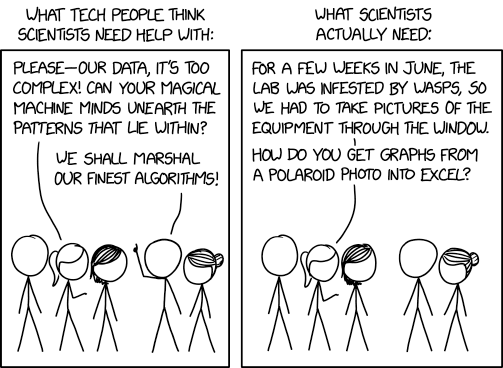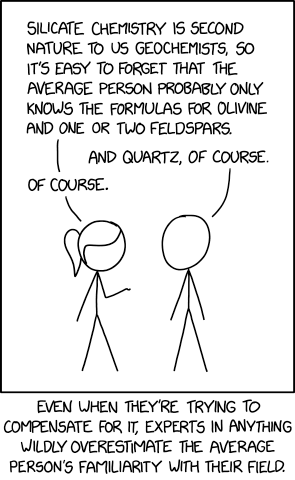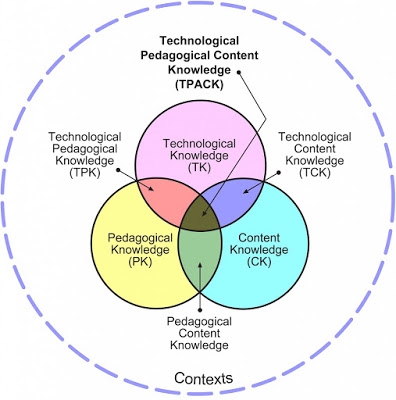Digital (or computational) + Humanities#
Before our first session, we have two activities that we want you to do.#
What makes up Digital (or computational) + Humanities?#
Go to this website and refresh the page a few times to get a new definition.
What do you think about these definitions? Did you find any of them helpful?
After considering some of these, what is your working definition of DH?
Take notes on your responses to this and we will discuss this in the session.
How did they do that? (general)#
Read the following post and watch the video before this session.
Consider the following questions and take notes before the session.
How do the concepts raised by Posner relate to DH projects that you have thought about as a model or template for your work?
What affordances and limitations are discussed?
Note: We will return to the concept of affordances and limitations throughout this Institute. Every time you make a choice in your project, you will be balancing what that choice affords or allows you to do, and what limitations or constraints it imposes.
What constraints did they operate under?
What was the original research question?
How did it change as the project was worked on? Whose labor was necessary for the project to be successful?
Which of those are made visible or acknowledged in the final?
In our first session, we are going to take some of the questions raised in How did they make that? and look at some DH projects to see if we can tell how did they make that? What choices did they make? Why do we think they made those choices?
The following is what we will do in our synchronous session#
Introductions#
Draw your interests/area of study. We will go around the room and share. We will revisit this drawing throughout the week.
What is DH?#
Digital humanities is inherently collaborative.
Digital humanities is an interdisciplinary field.
What is the importance of community in Digital Humanities? How that might differ from other types of scholarly communities?
In this session, attendees should come to understand how to define DH (in a way that is useful for them). This is essential because DH is so many things. What definition is useful for their research and scholarship?
How do we come up with definitions of DH that are useful? What kind of questions do you ask?
What is our working definition/concept of DH?
What falls outside DH but is a necessary precondition?
For example if Rafia’s working definition is: DH is any humanities inquiry where you use computational methods, often at scale,
Then what else might be necessary to make a DH project successful?
“At its core digital humanities is more akin to a common methodological outlook than an investment in any one specific set of texts or even technologies… Yet digital humanities is also a social undertaking. It harbors networks of people who have been working together, sharing research, arguing, competing, and collaborating for many years… a culture that values collaboration, openness, nonhierarchical relations, and agility” - Matthew G. Kirschenbaum in his article “What Is Digital Humanities and What’s It Doing in English Departments?
Rafia’s working definition is: DH is any humanities inquiry where you use computational methods, often at scale.
If you are interested in how people in your field are doing DH, you can search for reflections / articles on [your field or area of interest] + [Digital Humanities].
What isn’t DH?#
…DH is defined by communities of practice, whether those are of shared methods, research questions, values, or something else……If all this can be DH, maybe we want to say, fine, what isn’t DH? I find that question difficult to answer concisely or usefully? But I’ll try to give an example of a thing that can both very much “be” DH, or can be a non-DH thing—with explicit emphasis that it’s up to the practitioner(s) in question to identify whether they, their project, and their methods “are DH”.
What is humanities thinking?#
How would you define the humanities?
What are humanities methodologies?
What are humanities questions?
What is computational thinking?#
Command thinking (Intro. to Computer science, STS (Science and Technology Studies), etc.). We will be discussing this more when we discuss coding.
“Computational thinking is a pattern of problem solving that involves organizing and analyzing data, abstracting in search of patterns, and breaking complex problems into discrete, solvable parts.” Jeannette Wing, 2006, doi: 10.1145/1118178.1118215
“It enables humanities researchers to formulate new questions and to think through how to leverage both data and computational processes to explore those questions. While these skills may be taught in the context of a particular programming language, in our case Python, the patterns of thought are transferable to any language or computational process.” Lessons Learned from “Bridging the Gap: Women, Code, and the Digital Humanities” Reflection on 2014 ACH Microgrant by Celeste Sharpe and Jeri Wieringa
How to figure out which questions to ask#
What questions will help you figure out how how something was done?
What questions will help others help you figure out what needs to be done for your project?
Computational & humanities thinking: “How did they do that?”#
Determining how to ask questions: What questions you can ask?
Not providing answers, but generative questions: How did they do that? Why did they do it that way?
Tool-based vs. foundations approaches
Asking questions and avoiding the curse of knowledge.
How to build bridges, not walled gardens
How do you read a project to see what went into it?#
Like reading a bibliography:
How many articles are listed?
How many people? Who is given attribution?
Credits at the end of a movie
Affordances & limitations
System thinking: About affordances and limitations.#
Focus on what is being hidden from you.
What are the differences between different citations managers: Refworks vs. Zotero?
Precision/control vs ease of use.
What affordances & limitations are offered in each path?
How do you do that? How do we do that?#
You’re not going to be good at everything. What is your area of focus, and what do you know you need help with?
“I think that we rarely acknowledge another idea of what a DH project is, and the point of starting one: it’s a demonstration that you are actively participating and contributing to one or more communities, shaping and being shaped by them. Keeping that idea in mind can help ground your perspective as you proceed and allow you to avoid being overly focused on the idea of whether your project will or won’t succeed.” (italics added) Getting Started: Strategies for DH Professional Development, Paige Morgan
Values & ethics#
Labor & attribution#
“All kinds of work on a project are equally deserving of credit (though the amount of work and expression of credit may differ). And all collaborators should be empowered to take credit for their work.” Collaborators’ Bill of Rights
“Collaborations between students and more experienced digital humanities practitioners should benefit everyone.” A Student Collaborators’ Bill of Rights
Teaching DH in the classroom#
If teaching DH in the classroom, what threshold concepts or foundations skills would needs to be incorporated into your pedagogy?
How would planning a project that has both research and pedagogical goals change your planning process?
“Threshold concepts represent information previously not known by the learner, and once a person learns and understands that information, it permanently and drastically changes their perception of the topic.” (Meyer, Land & Baillie, 2010)
Technological Pedagogical and Content Knowledge (TPACK)#
Group work & project planning#
Project planning models#
Recurring questions to keep in mind: What are the affordances of choosing this path? What are the limitations?
You can use a project charter as a lightweight example of collaborative brainstorming and documentation.
How did they do this specific project?#
We will be discussing this page in our synchronous meeting. You do not need to engage with this page before the synchronous session.
What does a project site tell you about how it was done?
“Many students tell me that in order to get started with digital humanities, they’d like to have some idea of what they might do and what technical skills they might need in order to do it.” by Miriam Posner
Torn Apart/Separados, a project which has two phases.#
Reflection (What to do after this session)#
Add notes to your drawing/ project plan.
Based on today’s session, what additional questions or modifications to your project do you have?
What big questions still remain for your project and what new challenges for your project did you discover?
Who might you work with on this project?
What type of computation or tool might you use?
Planning a project#
How might you fill out this Project Charter handout?
We will return to this in the Project Planning discussion.
Further Activities (optional)#
How do you read a project to see what went into it?
Take an additional existing project and think about how you might take that process/methodology and adapt it to your field/research question.
What are some examples? How does it apply to your field?
Break it down into steps.
Imagine hypothetical projects (wire framing with no knowledge).
What expertise is needed? Individual expertise may vary.
What resources are needed?
What questions are you trying to ask or answer?
This is meant to be generative.
Attribution#
Session Leaders: Rafia Mirza
Written by Rafia Mirza.
Our curriculum is based on the Digital Research Institute (DHRI) Curriculum by Graduate Center Digital Initiatives. Their curriculum is licensed under a Creative Commons Attribution-ShareAlike 4.0 International License. When sharing this material or derivative works, preserve this paragraph, changing only the title of the derivative work, or provide comparable attribution.





